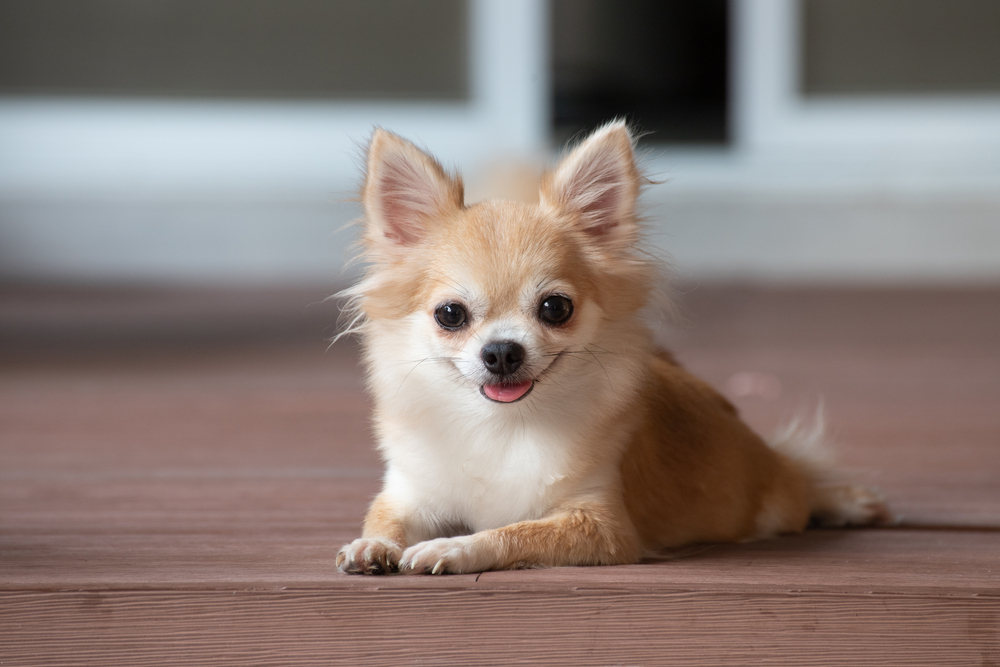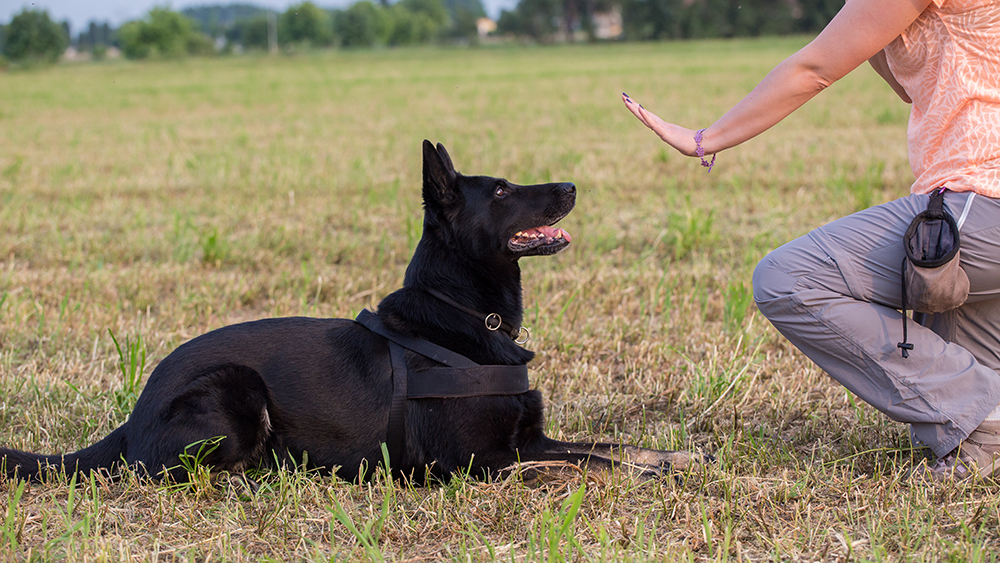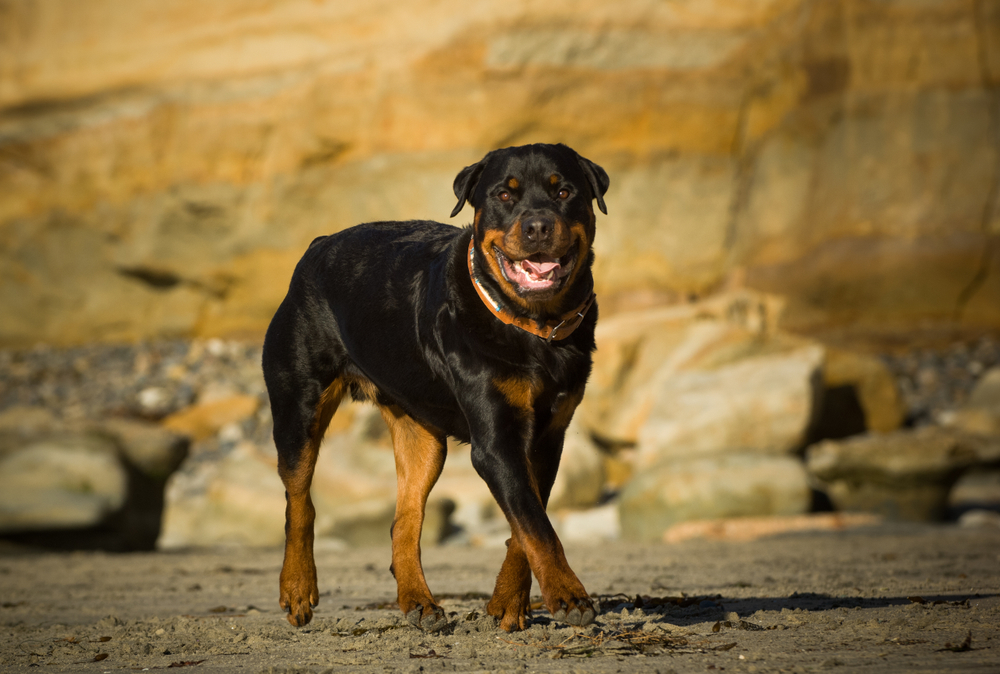Dogs and the game of fetch are synonymous, so it seems odd when you run across a dog that doesn’t play fetch. But some dog breeds simply aren’t entirely suited to fetch for a variety of reasons. They may struggle with retrieving objects due to their size or have trouble running because of breathing problems.
So, which dog breeds don’t play fetch well? Here’s a look at 15 breeds that don’t (or probably shouldn’t) play fetch and a list of a few dog breeds that love fetch (in case that’s what you’re looking for in a dog). Keep reading to find out whether your favorite dog breed is a fetch lover or better suited to other games!
The 15 Dog Breeds That Don’t Play Fetch
1. Basset Hound
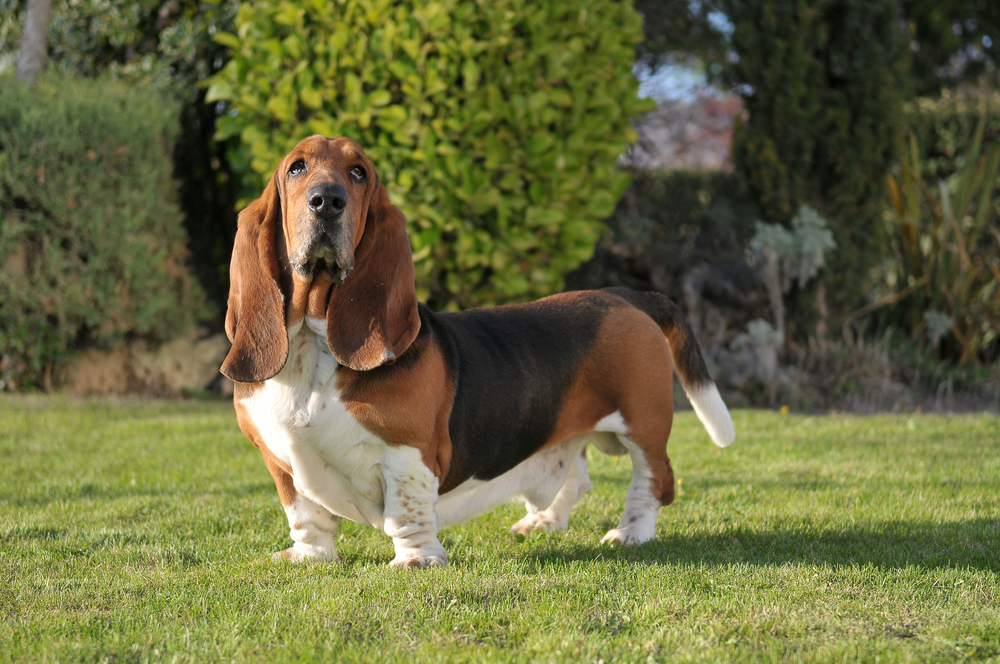
| Origin: | France, Great Britain |
| Lifespan: | 12 to 13 years |
| Height: | Up to 15 inches |
You might be wondering why a hunting dog wouldn’t play fetch, but though Basset Hounds have fantastic noses and can pursue prey, this breed is still slower and less active than other breeds. As such, fetch may not be the best game for them. These pups are intelligent and fabulous at problem-solving, so you might want to engage them in puzzle toys that allow them to utilize their skills. Games that involve hunting down items using only their nose will keep these pups happy, too!
2. Bulldog

| Origin: | United Kingdom |
| Lifespan: | 8 to 10 years |
| Height: | 14 to 15 inches |
Another pup who might be better off avoiding fetch is the Bulldog. These canines are adorable with their squish faces and wrinkles, but that squish face (or brachycephalic) can cause breathing issues, which could be exacerbated with a lot of running and fetching. This is especially true in weather that is hot and humid. This breed can be a bit lazy at times, too, as they love cuddling up with their human companions. Instead, let them enjoy exploring a fenced-in yard or making friends with the local dogs at the dog park.
3. Cane Corso
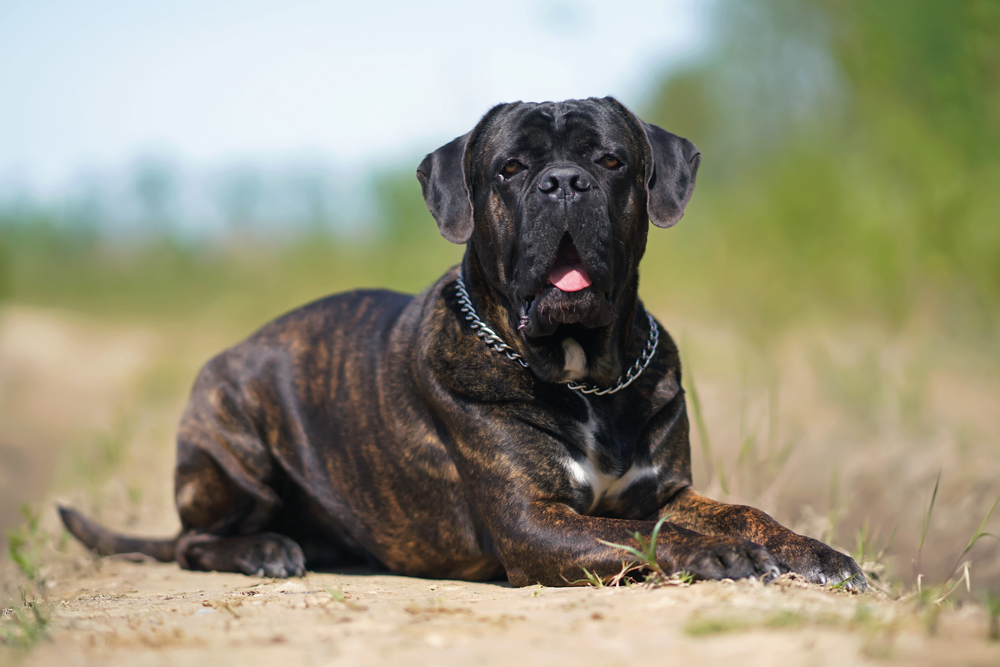
| Origin: | Italy |
| Lifespan: | 9 to 12 years |
| Height: | 5 to 27.5 inches |
The Cane Corso is a large dog, which makes them more prone to experiencing issues with their joints if they run or jump around a lot, making fetch a less-than-ideal game for them. This breed loves enrichment and having jobs to do (and will become bored and destructive without these things), so activities incorporating thinking and working will be perfect for this breed. Low-key exercise, like short walks, is also suitable for these canines.
4. Chihuahua
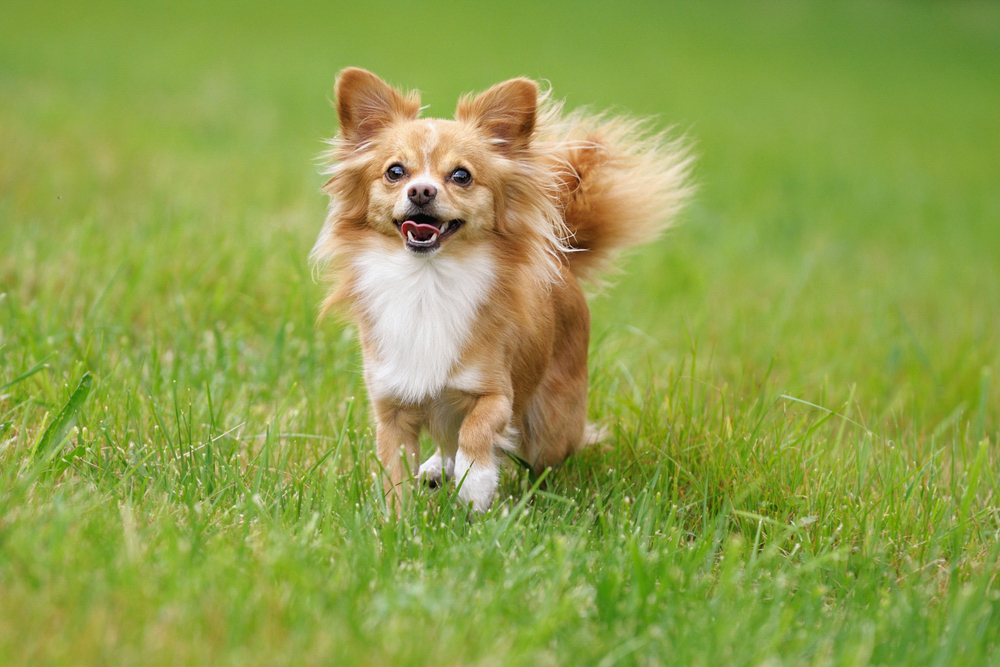
| Origin: | Mexico |
| Lifespan: | 14 to 16 years |
| Height: | 5 to 8 inches |
The Chihuahua is super tiny, so it could be physically difficult for them to retrieve a ball or toy (unless it, too, was very tiny). This breed does need daily exercise, though, so a short walk a day should be good for them. They also love playing with their families, so engage them in games of tug of war with appropriately sized toys. Due to their somewhat bitey natures, this breed would likely enjoy chew toys immensely.
5. Chow Chow
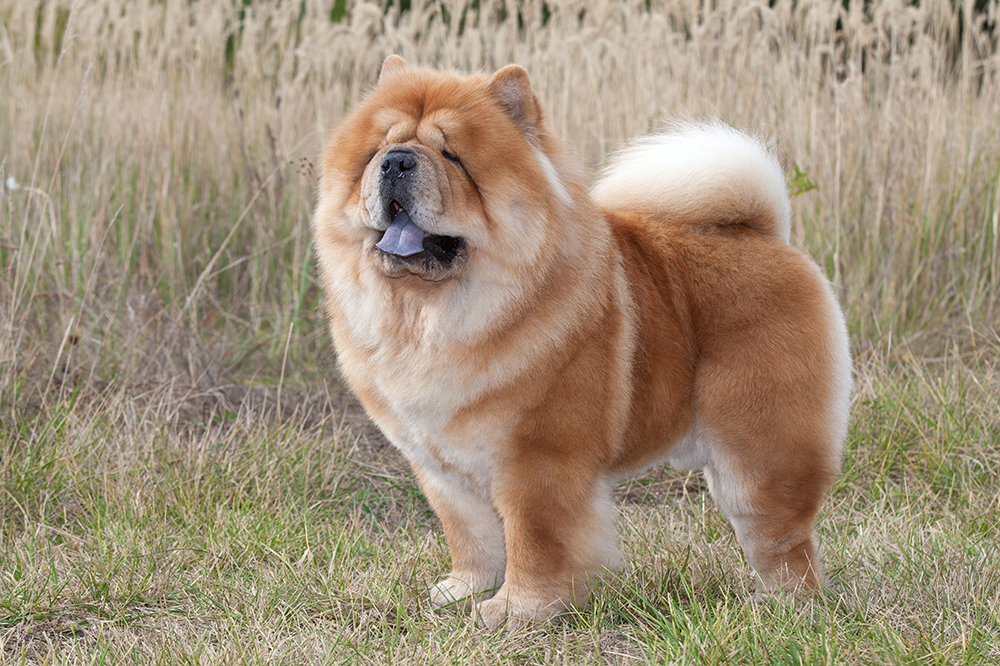
| Origin: | China |
| Lifespan: | 8 to 12 years |
| Height: | 17 to 20 inches |
These adorable lion-looking pups have slightly squishy faces, which can make it difficult to breathe when they exert themselves too much or are in hot or humid climates. The Chow Chow also tends to be less playful than other breeds, so fetch may not be a game they enjoy much. A couple of walks a day should suffice for these canines. When it comes to toys, you’ll probably want to stick to chew toys and other similar items that won’t require them to move much while using them.
6. Dachshund
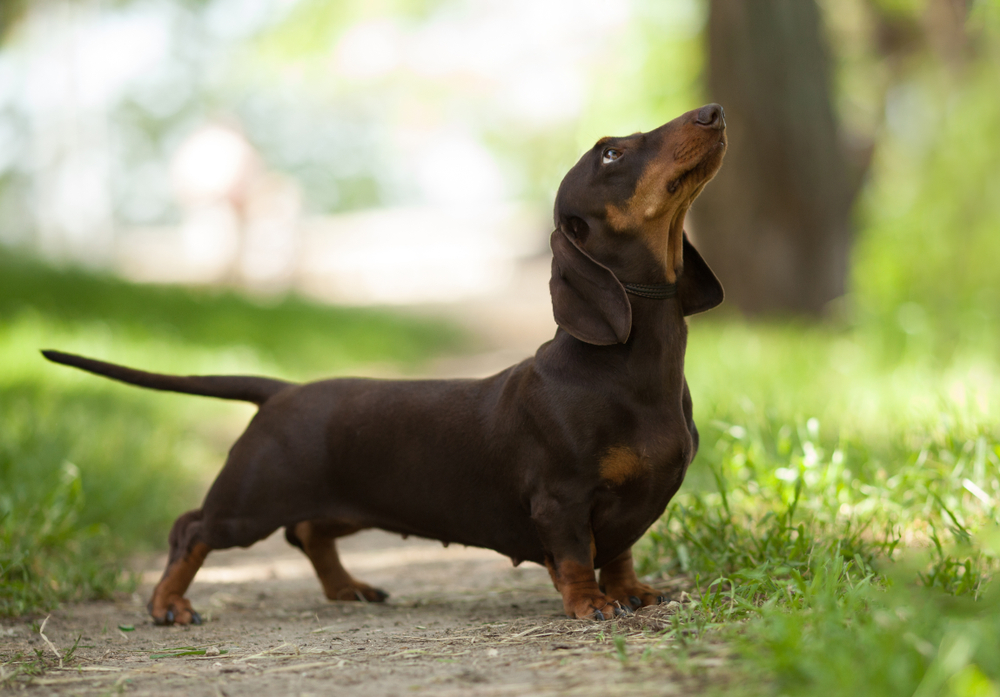
| Origin: | Germany |
| Lifespan: | 12 to 16 years |
| Height: | 5 to 9 inches |
The Dachshund and the game of fetch don’t mix for a variety of reasons. For one, this breed is smaller (especially if you get a miniature Dachshund), so they could have difficulty picking up objects large enough to be tossed for a game of fetch. This breed is also prone to issues with their spine due to their long backs. As such, their spines need to be always protected, which means no jumping and not a lot of running. Short walks, chew toys, and toys that allow this breed to dig should keep them happy, though.
7. Doberman
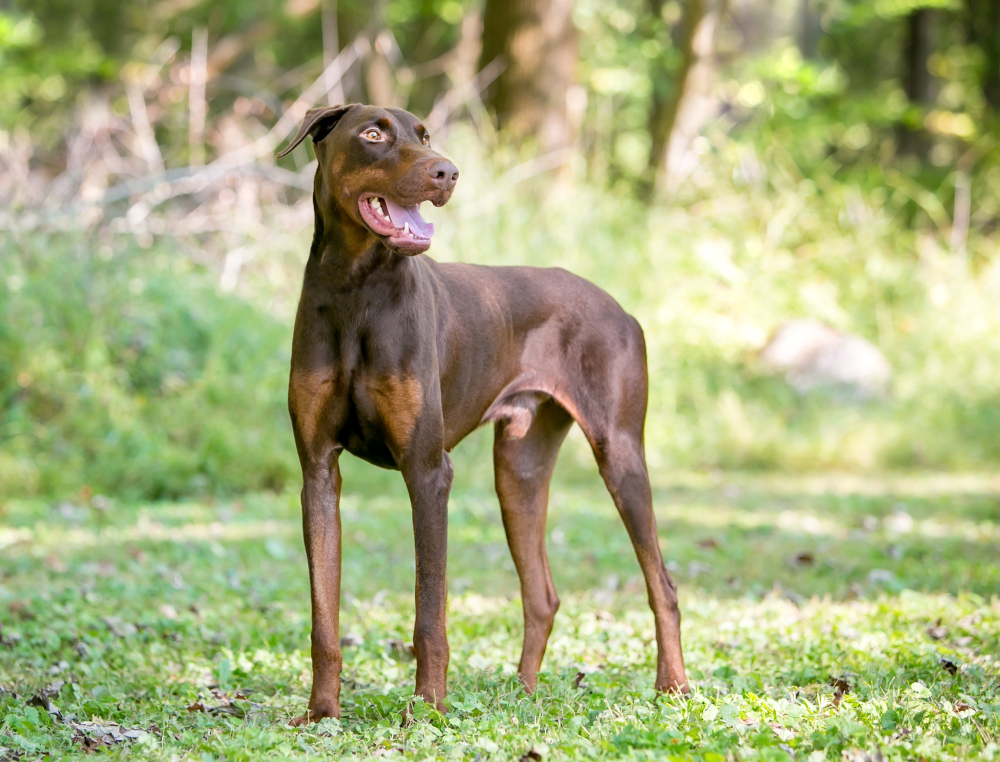
| Origin: | Germany |
| Lifespan: | 10 to 13 years |
| Height: | 26 to 28 inches |
Dobermans are another large breed of dog, which means they’re more likely to experience issues with their joints. That means constant running may not be best for them. However, these canines are incredibly energetic and require about two hours of exercise a day. Besides walks, you might consider training a Doberman in something like agility, as the breed is incredibly intelligent and loves having work to do.
8. Great Dane
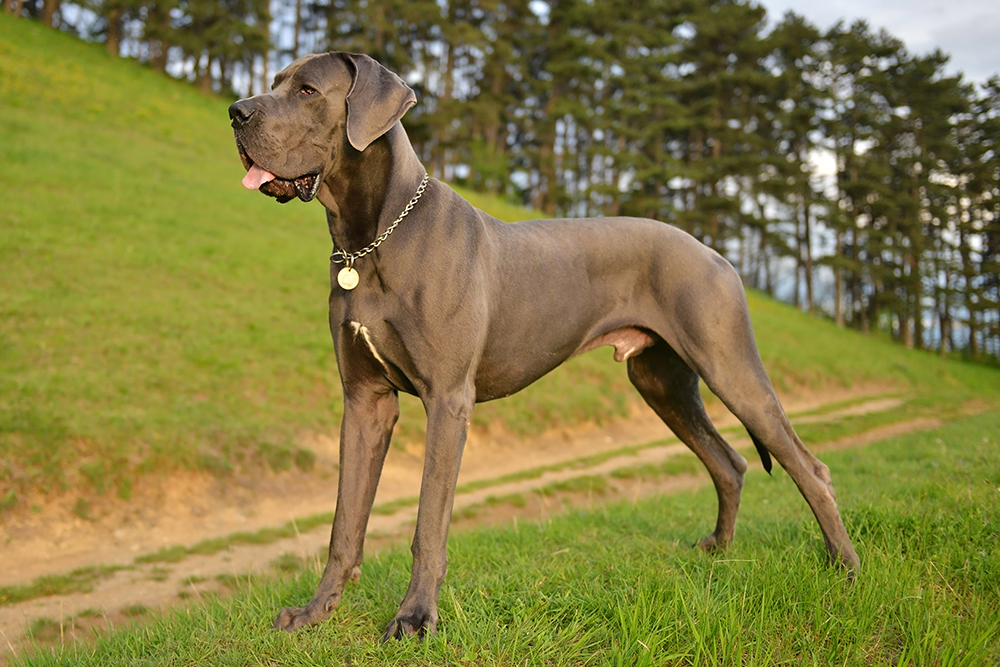
| Origin: | Germany |
| Lifespan: | 7 to 12 years |
| Height: | 28 to 32 inches |
As you’ve probably guessed, Great Danes don’t play fetch often because of their size and the joint issues inherent with that size. Again, large breed dogs like this require exercise, but lighter, more laid-back exercise. Plus, Great Danes aren’t that active anyway. A couple of short walks a day, some chew toys, and some time spent in a fenced-in yard will suit them well.
9. Mastiff
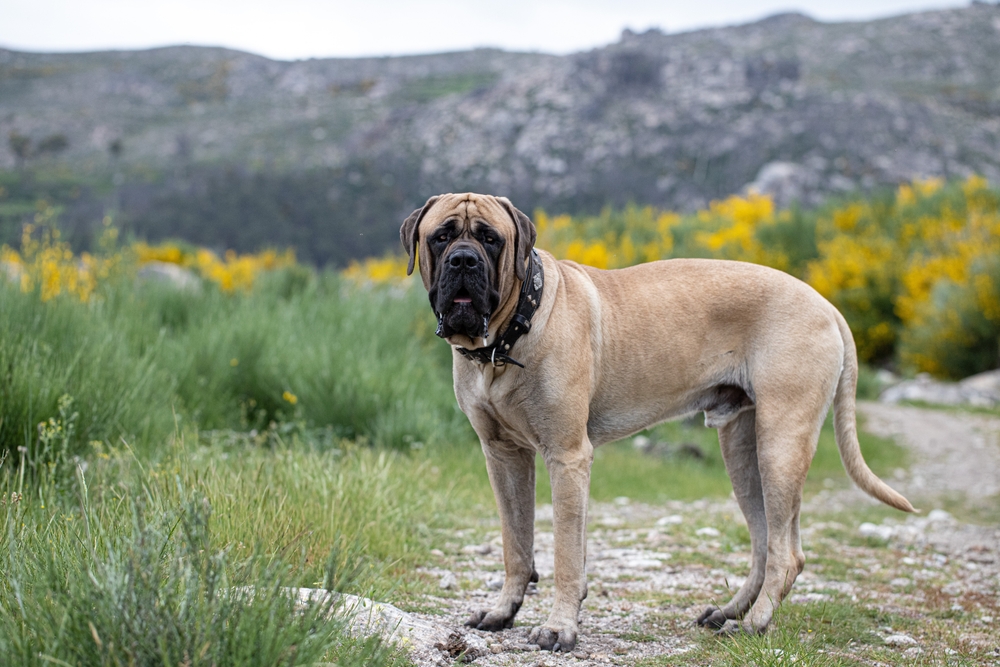
| Origin: | England |
| Lifespan: | 6 to 10 years |
| Height: | 28 to 36 inches |
Once again, the size of the dog here could prove problematic when it comes to games of fetch, as larger dogs are prone to developing problems with their joints. The Mastiff also tends to be less active than other dog breeds; a couple of 15-minute, low-impact walks should suffice for these pups. You need to be particularly careful with this breed when they’re puppies, as too much play and exercise could overtax the joints, which can cause damage to the joints. In fact, this breed shouldn’t do much running or jumping until they’ve reached the age of two.
10. Newfoundland
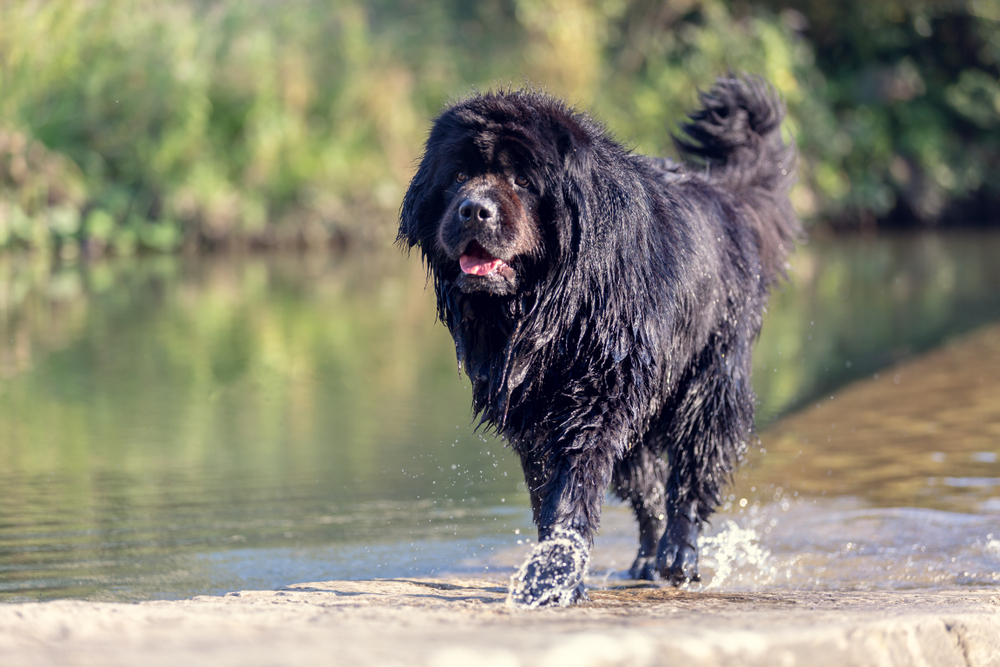
| Origin: | Newfoundland |
| Lifespan: | 8 to 10 years |
| Height: | 26 to 30 inches |
Not only are Newfoundlands quite large, which makes them prone to joint issues, but these gentle canines also lean more towards a sedentary lifestyle. However, if they become too sedentary, they can quickly become overweight, so exercise is needed—not in the form of fetch, though. For these dogs, tug-of-war and swimming make excellent play and exercise options.
12. Pekingese
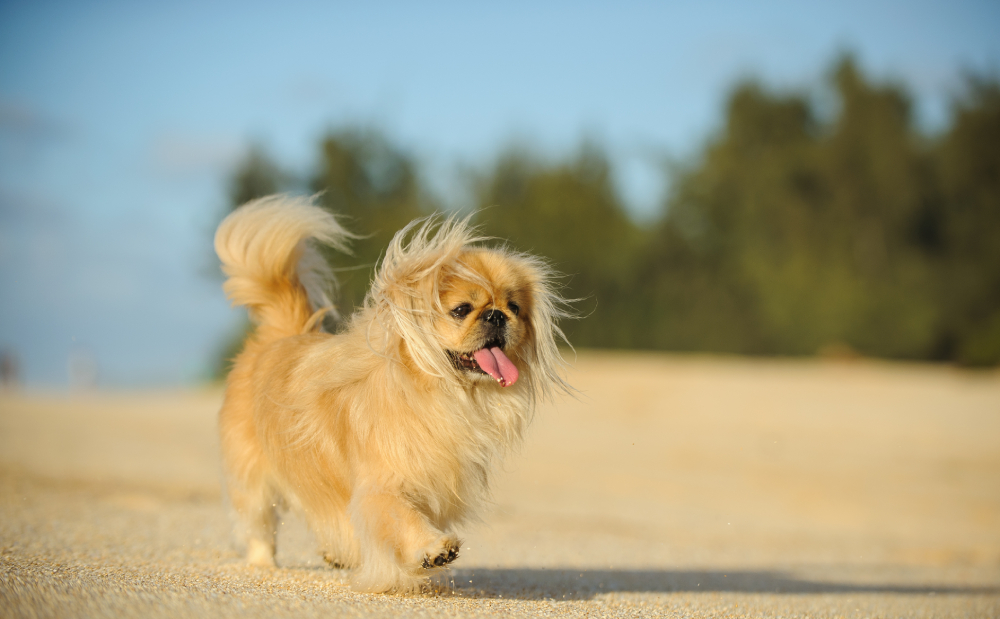
| Origin: | China |
| Lifespan: | 12 to 15 years |
| Height: | 6 to 9 inches |
This small breed has both their size and their brachycephalic working against them when it comes to games of fetch. With the potential issues of overheating, difficulty breathing, and inability to retrieve a ball, this breed will likely enjoy other games more than fetch. Add to that the fact that this breed isn’t that active, and you’ll find that short walks and indoor play are most suited to the Pekingese.
12. Pug
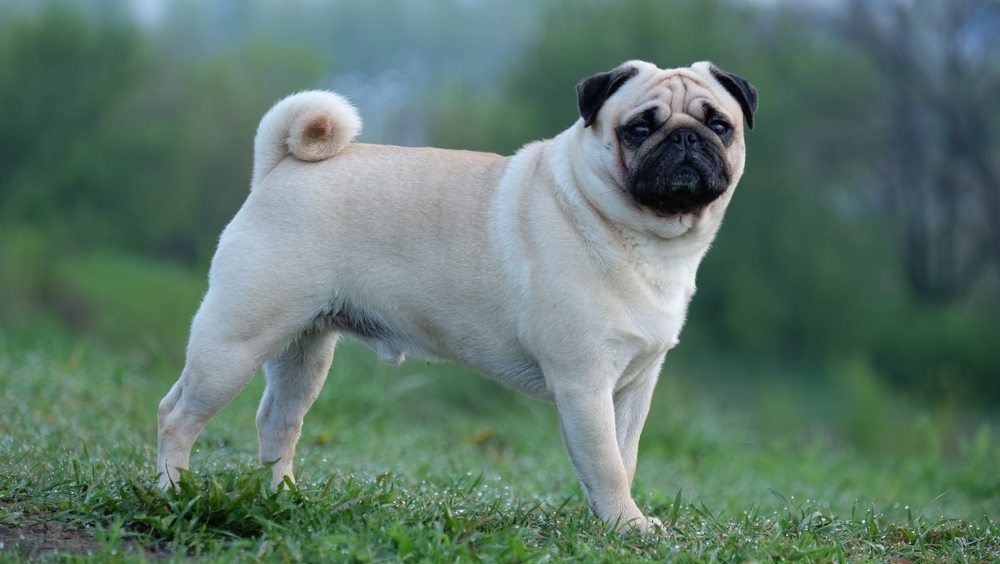
| Origin: | China |
| Lifespan: | 13 to 15 years |
| Height: | 10 to 13 inches |
Pugs are, of course, a brachycephalic breed, which means their squishy faces aren’t entirely suitable for games involving a lot of running, like fetch. They do need exercise, though, which you can accomplish via short walks. These pups also tend to excel at agility and obedience competitions, so you may want to train your Pug for that!
13. Shar Pei
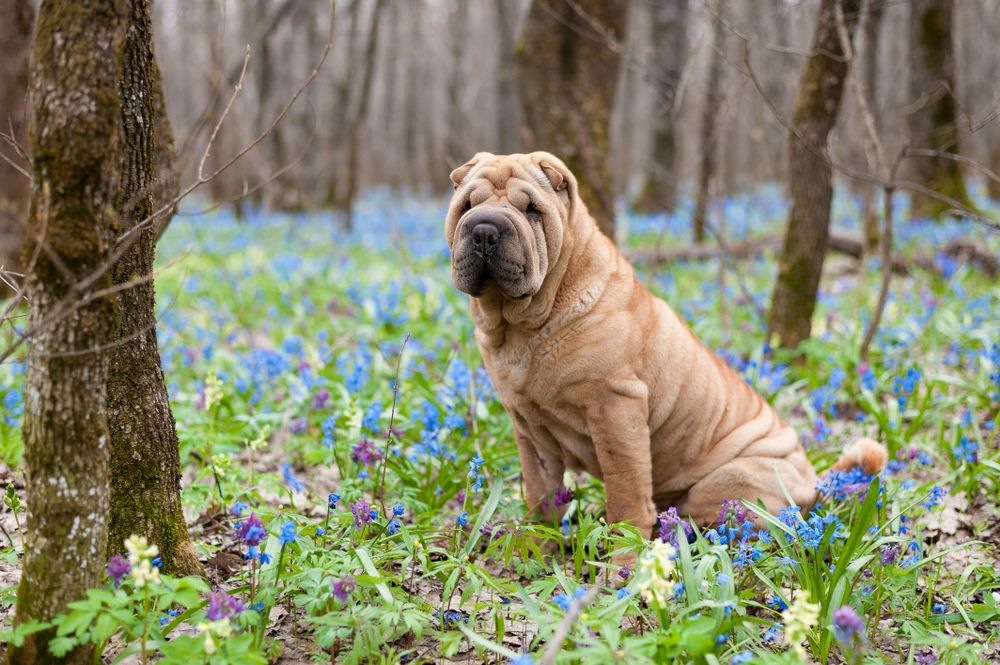
| Origin: | China |
| Lifespan: | 9 to 11 years |
| Height: | 17 to 21 inches |
The Shar Pei is on the slower side and a bit lazier than other dog breeds, so they likely won’t be all that into fetch. However, they experience periods where they get hyperactive and want to run around, so an occasional game of fetch might work. Most of the time, though, you’ll be looking at daily walks, tug of war, chew toys, and time outside exploring the yard.
14. Shih Tzu
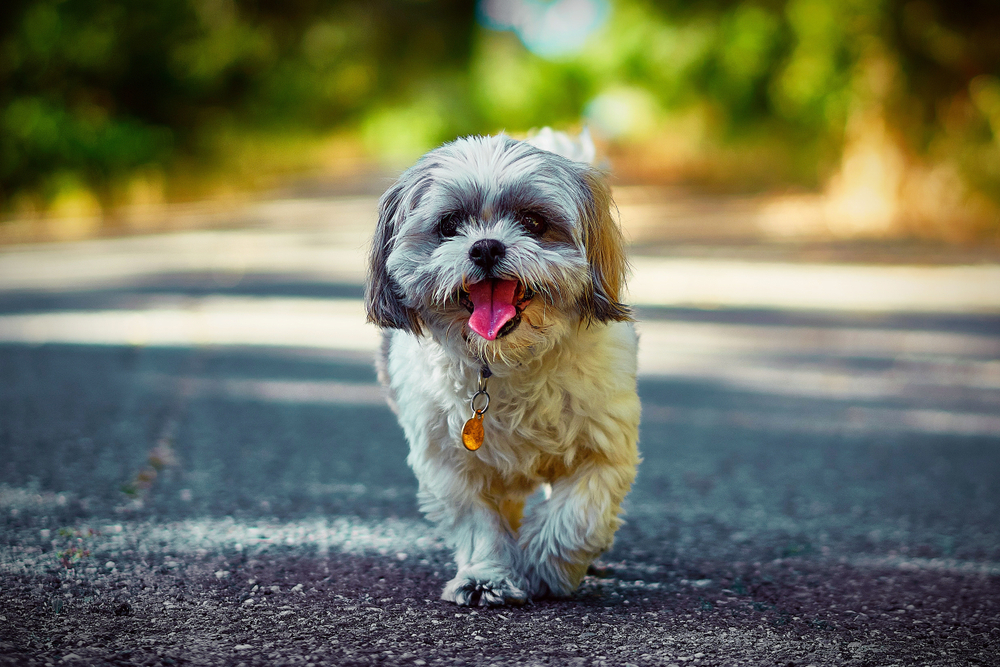
Mr Sarwar, Shutterstock
| Origin: | Tibet |
| Lifespan: | 10 to 16 years |
| Height: | 9 to 11 inches |
These small pups are floofy and adorable, but their size works against them when it comes to fetch. Their short legs can’t keep up with lots of running, and exercising more than 45 minutes a day could injure them. Shih Tzus are lively, though, so they need plenty of playtime. Most of this can be done indoors, although these dogs can be skilled at modified agility competitions!
15. Saint Bernard
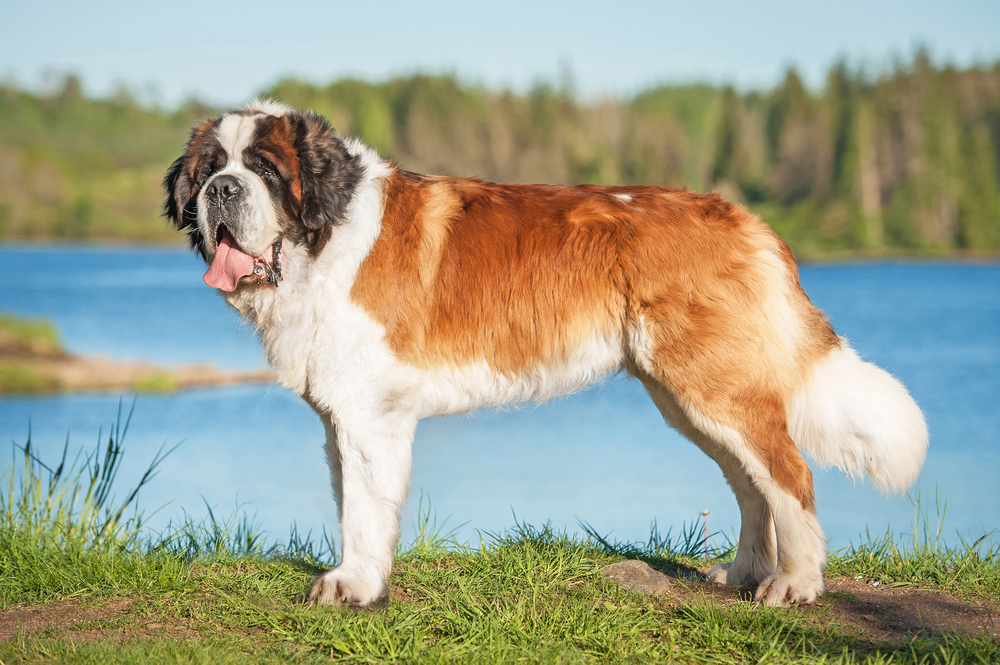
| Origin: | Switzerland |
| Lifespan: | 8 to 10 years |
| Height: | 26 to 30 inches |
Finally, we have another large breed dog that likely won’t do well with games of fetch due to their size and the strain lots of running can put on their joints. However, this doesn’t mean the St. Bernard needs no exercise, as the breed is moderately active. Besides walks, signing your pup up for puppy playtime or taking them to the dog park should satisfy their activity needs.
And a Few Breeds Who Do Enjoy Fetch!
Finally, a few dog breeds adore playing fetch, so if you want a pup who will enjoy the game, one of these breeds may suit you best! Not surprisingly, several of these dog breeds are working dogs or were designed to retrieve.

Conclusion
Some canines don’t play fetch because they simply aren’t well-suited to the game. This could be because they’re smaller breeds who struggle to retrieve items, large breeds who suffer joint issues with too much running or jumping, or brachycephalic breeds who have difficulty breathing at times. However, plenty of other dog breeds absolutely adore playing fetch, so if you’re looking for that trait in a dog, you’ll find plenty of breeds to suit you!
Featured Image Credit: Ratchat, Shutterstock

